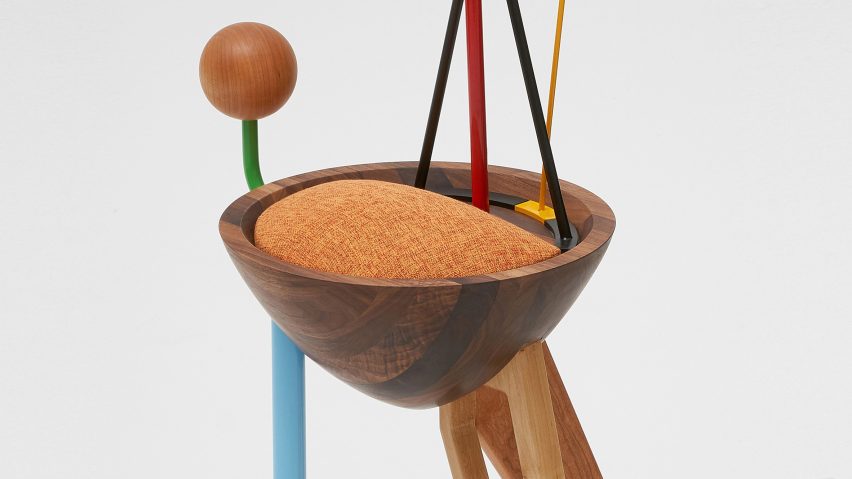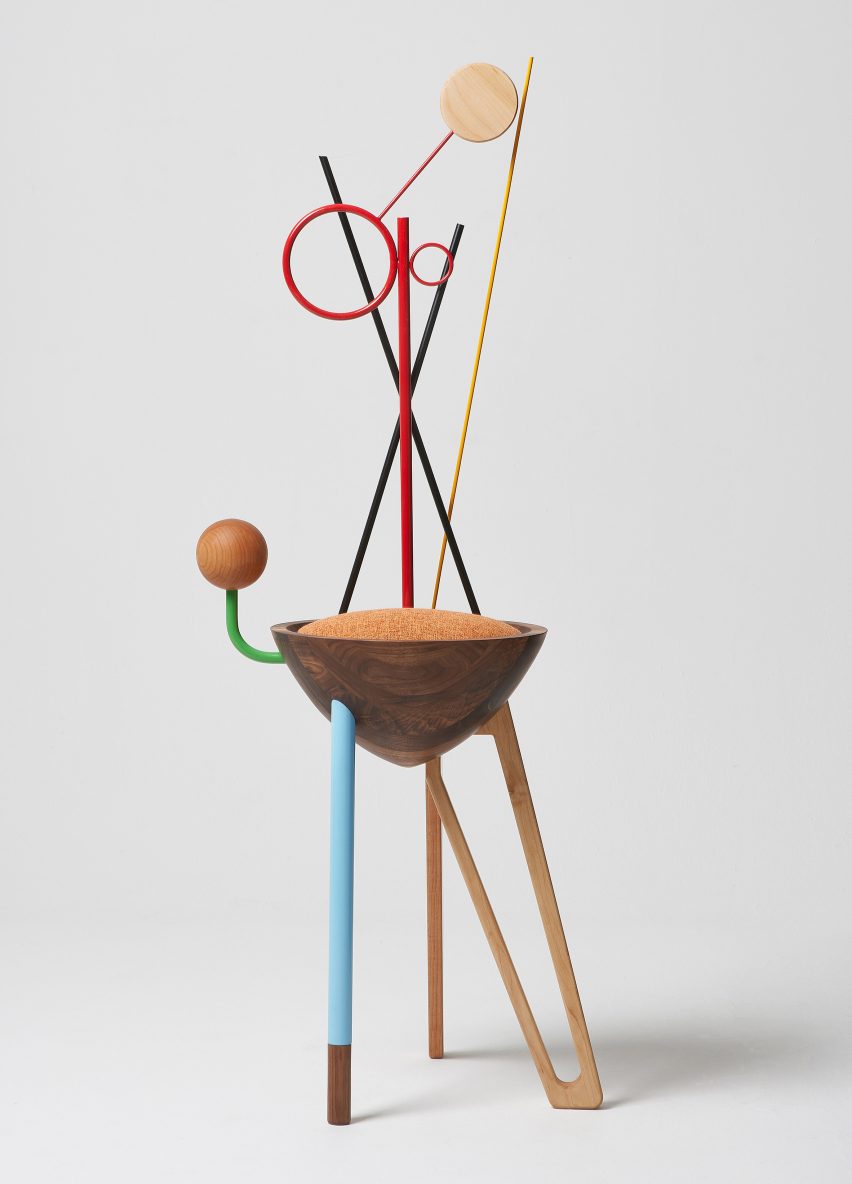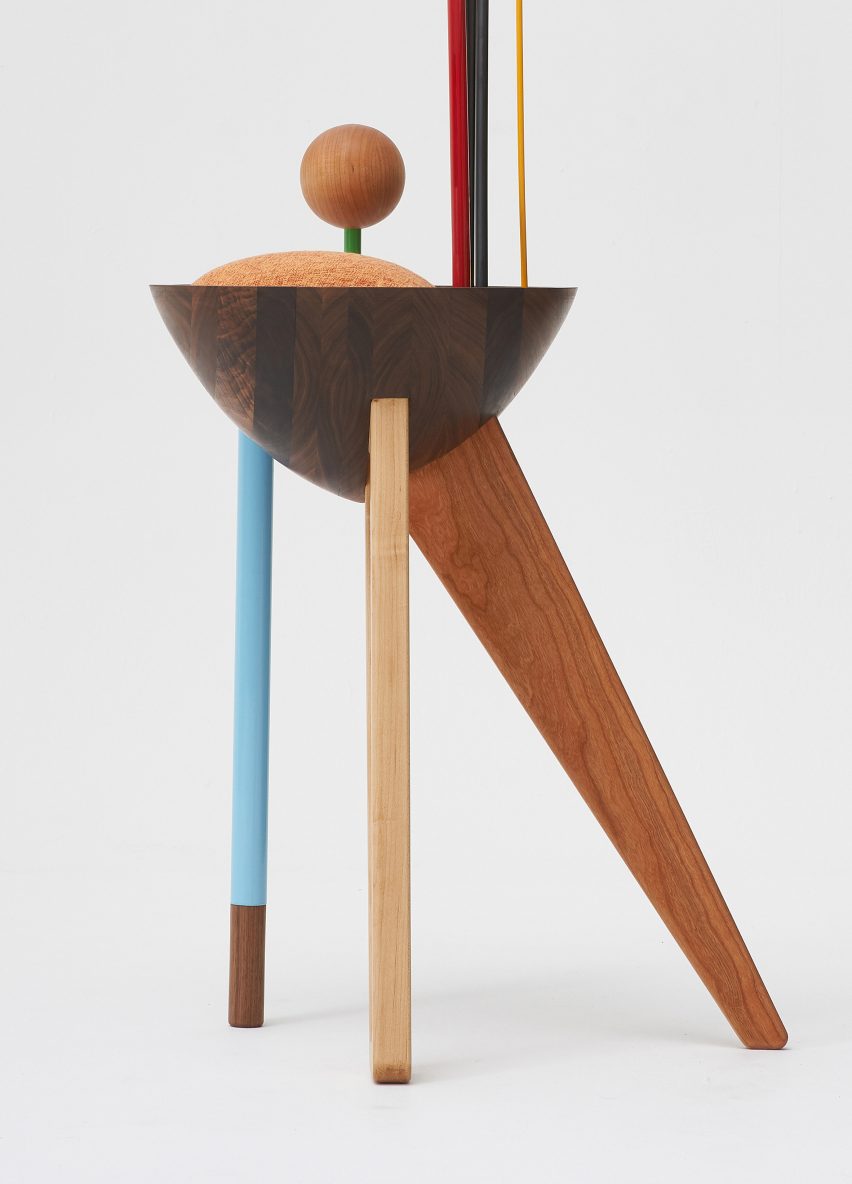
WoongKi Ryu's Abstraction chair takes cues from works of Kandinsky
Korean designer WoongKi Ryu has based elements of this chair on the motifs and colours seen in paintings by Russian artist Wassily Kandinsky.
Ryu's Abstraction chair features a wooden seat with a backrest formed from colourful, splaying shapes.
Each of these elements are based on motifs seen in the early 20th-century expressionist works of Kandinsky – in particular his Composition VIII painting, which features graphic shapes and colourful accents.
Ryu – a student at South Korea's Hongik University – aimed to bring this abstract approach to traditional furniture design, using standard materials to produce a chair that puts form before function.

"Instead of approaching the functional purpose of the chair, I wanted to highlight the emotion and meaning of the chair, which could only be expressed abstractly," the designer told Dezeen. "I wanted to mimic the way Kandinsky approached abstraction in his paintings."
The designer used hard maple wood to create the semi-circular seat, while the backrest elements are formed from powder-coated metal.
An armrest-style protrusion is topped with a solid wooden ball, and the neck rest has been crafted from a wooden disk.
Three CNC-cut legs each take on a different form: one is shaped like a frame, another comprises a circular rod, and a third is a solid block placed at an angle.

"Kandinsky rejected the realistic form and expressed colour and form derived from his emotion," the designer said. "Inspired by these expressive motifs, the chair's physical attributes were represented by abstract ideas inherent in its form rather than its objective function."
"The chair has been deconstructed by its structural elements, and has been rebuilt ideologically based on its shape and function," Ryu added.
Kandinsky's work was similarly used as a reference point by designer Denis Guidone when creating a watch for American brand Projects.
Looking to a piece named Diagram 17 – published in Kandinsky's essay Point and Line to Plane – Guidone applied graphic elements to the watch's hand and face that combined curved forms and straight lines.